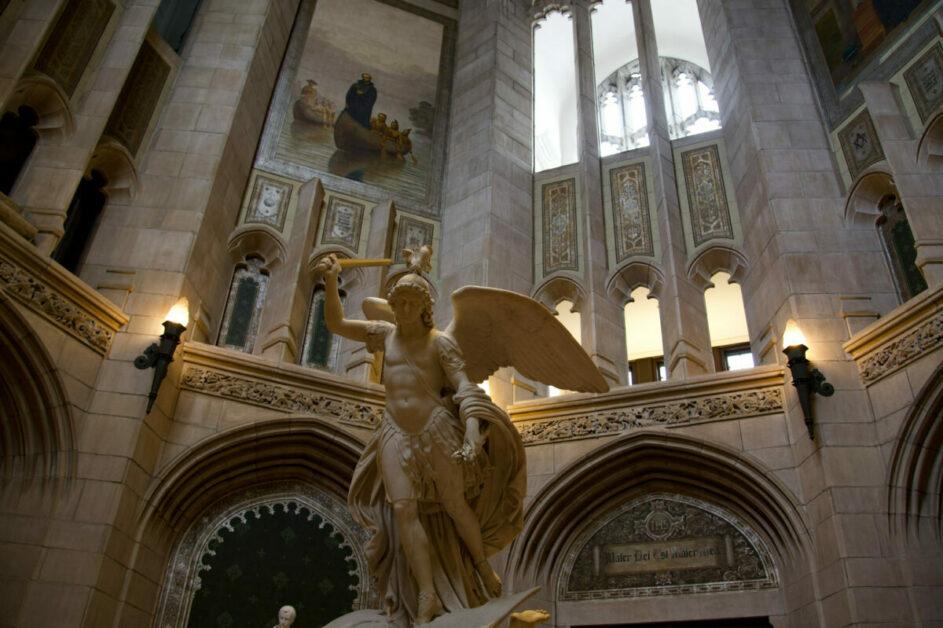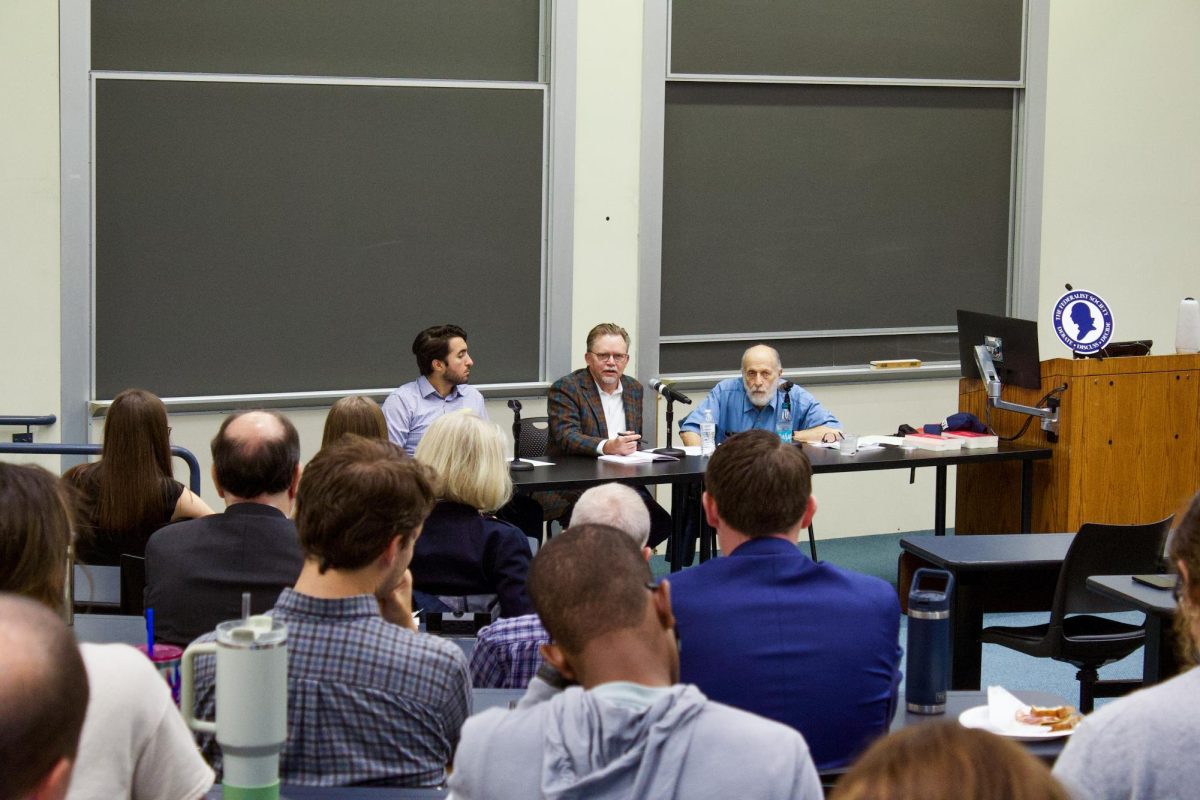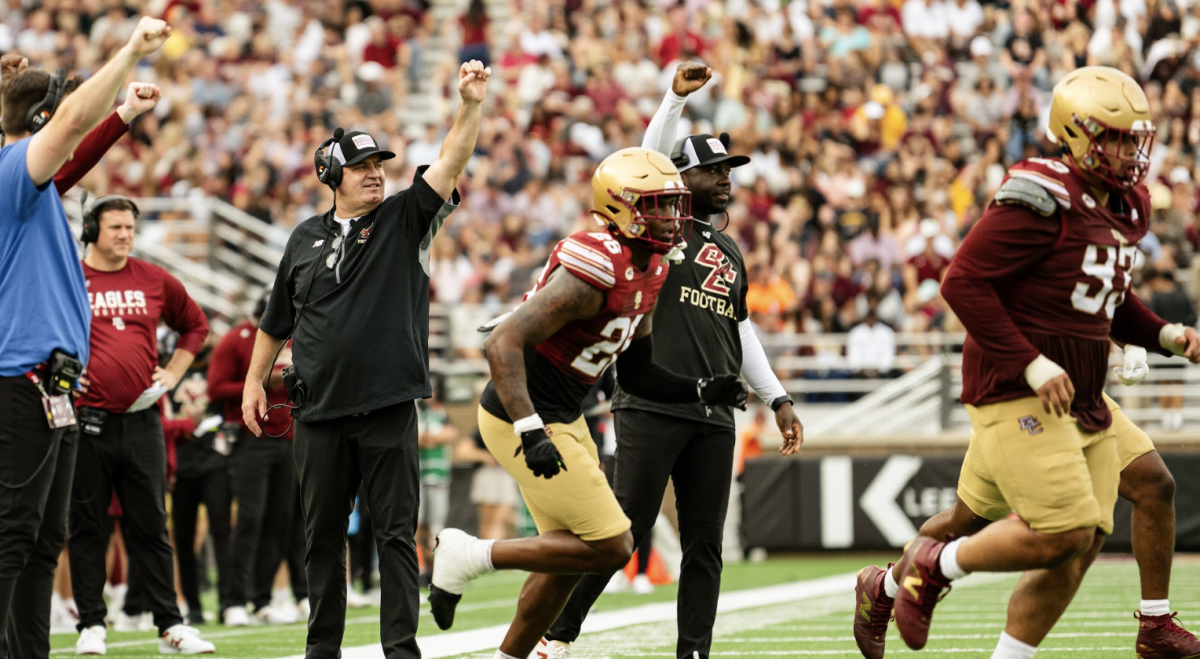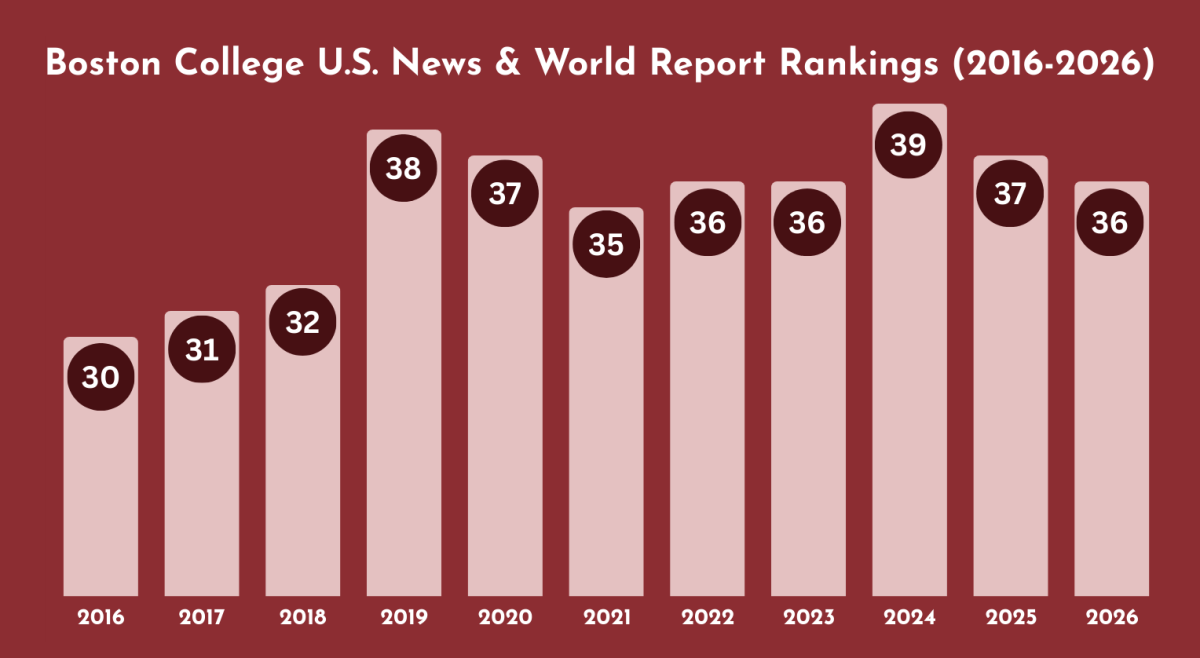The GLBTQ+ Leadership Council (GLC) released a petition on Tuesday calling for Boston College to clarify its position on LGBTQ+ rights and make a statement in support of queer students and alumni.
The petition is in response to a Monday statement from the Vatican, which said that the church does not and cannot have the power to bless same-sex unions. GLC announced the petition in an Instagram post on Tuesday.
“We are saddened, hurt, and angered by the statements from the Vatican and Pope Francis on the church’s refusal to bless same sex unions,” the petition reads. “The Vatican’s remarks, describing our sexual and gender identities as ‘a choice’ and as fundamentally sinful, do great harm to LGBTQ+ catholics and Queer people everywhere.”
The Congregation for the Doctrine of the Faith (CDF) issued a document on Monday in which it said that the Church does not have the power to bless same-sex unions. Pope Francis agreed to its publication, the document said.
The document states that the church can only bless what is according to God’s design in creation—the union of a man and a woman. Same-sex relationships, according to the document, have positive elements that should be valued, but are not justified because their union is not in order with God’s plan for marriage.
The document also said that God does not bless sin but does bless the sinful person so that he can change this person.
Ivy DiBiase, GLC policy coordinator and MCAS ’22, said that the Vatican’s statement is hurtful because the Catholic Church teaches people to emulate God’s love, but lessens the value of love within the LGBTQ+ community.
“To me, the unconditional part of that means we include everyone, and to not include everyone in that is incredibly frustrating and hypocritical, especially to just have our love be devalued and invalidated,” DiBiase said.
Alexandra Katz, Student Assembly representative and Lynch ’23, said that this statement was shocking coming from Pope Francis because he has been praised for tolerance toward the LGBTQ+ community in the past.
“It presented a complete contrast and honestly quite a setback for those who had hoped that the institution of the church would essentially work to modernize its approach and its perspectives toward the LGBTQIA+ community as a whole,” Katz said.
Tommy Boyce, the chair of GLC and CSOM ’21, said that he was not surprised at the Vatican’s statement because as much as Pope Francis had previously been supportive of the LGBTQ+ community, he knew that the institution of the church is not a friend.
Boyce was surprised, however, at the church’s decision to call the union of same-sex people a sin.
“Also it wasn’t the fact that like, ‘Oh, we can’t bless gay marriage,’” Boyce said. “They’ve doubled down on being like ‘Homosexuality is a sin. It’s a choice. You are choosing a life of sinfulness.’ Like, oh wow, we’re backtracking right now. This is great, we’re going back to the old classics.”
Katz said that the Vatican should not have made any statements calling LGBTQ+ relationships inherently sinful and disordered because, among other reasons, they are clearly not.
“It is simply not their place to make claims or blanket statements on the relationships of other individuals,” Katz said.
Katz also said that the Vatican’s statement makes it harder for LGBTQ+ individuals to exist on BC’s campus.
“As somebody who is openly and unapologetically gay on this campus, I can attest to the fact that the mere act of existing as an LGBTQIA+ individual on this campus is an act of courage and nonconformity in itself,” Katz said.
Being an LGBTQIA+ individual at BC jeopardizes one’s safety and makes it incredibly difficult to exist openly and authentically, Katz said.
“It transgresses the binary nature of this institution, it transgresses the heteronormative and cisnormative nature of this institution,” Katz said. “And the statement of the Vatican suggests and ultimately confirms that no queer person on this campus, or within society, is inherently safe in existing authentically and existing as their full selves.”
Megan Day, MCAS ’24, also expressed fear over the harm this statement causes.
“So anytime something like this happens, it allows people to almost excuse their homophobia and double down on their homophobia as it’s ordained by the church,” Day said.
As a Jesuit institution, Day said BC has an obligation to acknowledge the harm that the Vatican’s statement causes and provide support for the University’s LGBTQ+ students.
“We have an obligation, almost, to stand up for what’s right and to hold the church accountable for what it’s doing,” Day said.
Katz said that the administration has failed to respond effectively to the concerns of the LGBTQ+ community.
“They have routinely ignored the concerns of LGBTQIA+ students and suppress their voices through administrative decisions and their collective silence in the aftermath of oppressive incidents or hate crimes directed at any given marginalized community,” Katz said. “This is not exclusive to the LGBTQIA+ community.”
BC’s Communication Department directed The Heights to faculty in the theology department, who were not immediately available for comment.
Boyce said that the GLC’s statement came from an attempt to communicate members’ pain to the BC administration.
“The statement really came from us talking amongst ourselves, and being like, ‘Okay, people have been really hurt by this, and we need to give them a voice to relay that feeling of pain, and this anger,’” Boyce said.
Day expressed her surprise that the petition, which garnered 244 signatures at the time of publication, has not received more attention.
“In an age where everything is shared online, I’m honestly surprised it hasn’t been shared more,” Day said.
DiBiase said she would like to see support from the entire BC community.
“If we are truly men and women, and non-binary and gender non-conforming folks for others, then we should be supporting each other,” DiBiase said.
DiBiase said the lack of response from University President Rev. William P. Leahy, S.J., and the BC administration makes LGBTQ+ students feel unsupported.
“I love this campus with my whole heart, and I love this school, but it makes me sad when I remember that the people in charge are members of an institution that, by definition … does not believe in the rights of LGBT people, non-cis people, in that way,” Day said.
The BC administration has failed to openly advocate for the LGBTQ+ community in a significant way, according to Day, and does the minimum required of it so that it does not come under fire.
“I’ve said it before and I’ll say it again—the BC administration is as tolerant of the LGBTQ+ community as they have to be,” Day said.
Boyce said he doubts the BC administration will respond to the Vatican’s statement, but emphasized the importance of community and sticking up for one another when people fail to stick up for them.
“The fact that this hurt people, because I don’t care what the church says about me, but the fact that they hurt my friends and people I know really were beat up by this, makes it really, really just furious,” Boyce said. “It’s what really motivates me for this [petition]. … It’s hard to be queer at Boston College, but that’s why we’re trying to make things better.”
Katz said that the experiences of members of the LGBTQ+ community at BC are only theirs to impart.
“The identities and histories and lived experiences of any individual, any LGBTQIA+ individual at Boston College, or otherwise, are theirs to define, theirs to claim, and theirs to disclose,” Katz said.
She emphasized that these experiences cannot be oppressed by any institution, whether that be BC, the Vatican, or anything else.
“No oppressive institution … as I said earlier, will ever limit our pride and no oppressive institution will ever make light of our pain, without our collective resistance,” Katz said.
Boyce said this idea is reflected in the statement from the GLC.
“We end the statement with ‘Celebrating Our Queerness, The Exec. Board of GLC,’ because … our worth is not defined by the Vatican and by BC,” Boyce said. “And GLC will continue to create a space for queer kids to feel loved and accepted and to reach their full potential. And we don’t need approval from others or acceptance to do that. We’re going to do that ourselves.”
DiBiase also emphasized that members of the LGBTQ+ community define their love—the Vatican’s statement does not.
“I like the last part of the statement because it said that the Vatican does not define our love, and I think that’s very true,” DiBiase said. “It’s a reminder that they can say whatever they want, but we define our love and we live our truths.”
Featured Image by Nicole Vagra / For the Heights













